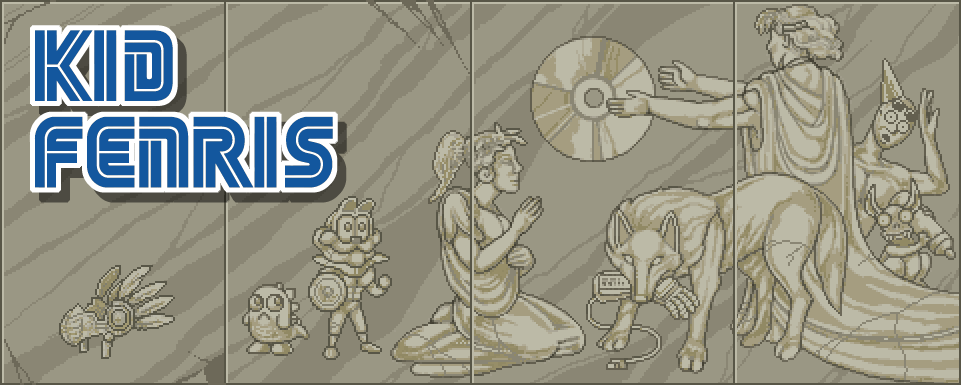In fact, Tactics Ogre has led me to understand why I enjoy Yasumi Matsuno’s games in general. The storylines play some part, as they’re freshly harsh and depressing, sometimes to the point of breast-pounding bathos (here I’m thinking of the scene where a dying pirate leader cries out that she’s going to see her dead husband and bringing their unborn child with her). More than that, though, is Matsuno’s habit of capturing something that RPGs rarely strive for: a constant reminder that you, the player, are an insignificant speck.
Most RPGs, regardless of origin, give the player an entire world to explore, usually as a dramatically simplified globe with about a dozen cities or so. Even in smaller games that span only a few fantasy kingdoms, the story will confine itself to those borders, rarely hinting that there’s a planet beyond them. Yet Matsuno games, from Ogre Battle to Vagrant Story, always paint a broad picture, making it clear that there’s a vast and complicated world going on out there, with churning political struggles and brutal warfare, and that the main character’s tale, however compelling, is just a scrap of it. Even Final Fantasy XII, part of a series that traditionally lets the player map out several continents, stuck to a small stage of a few warring nations.
It’s not just the realistically confined setting, either. Like other Matsuno games, Tactics Ogre builds up an elaborate background of cultures, nations, and reasons for all of them to hate each other. There’s an in-game encyclopedia entry on every faction and major character, and their histories often stretch past Tactics Ogre and into the eight-part Ogre Battle franchise that will never be properly finished. Some RPGs, the Suikodens among them, play in deliberately limited scenery just as Matsuno’s games do, but they don’t flesh out their surroundings nearly as well.
So that’s part of why I like Tactics Ogre. Another part lies in the dialogue. It’s bland and filled with errors, but the translators, much like the Final Fantasy VII localization team, went batshit insane with power once they realized that Sony allowed actual profanity in PlayStation games. It's especially common in exchanges between the heroic Denim's touchy sister, Kachua, and his murderous friend, Vice.

I’ve yet to see them invoke “fuck” for Tactics Ogre’s blend of medieval insults, but Kachua gets called a bitch about 87,000 times by the end of the second chapter.

No comments:
Post a Comment